If you own a German Shepherd, one of the most important things to know is its feeding requirements. What can you give to your German Shepherd? Moreover, what does it like to eat?
German Shepherds are known for their devotion and willingness to do anything for their owners or trainers. Moreover, they are known for quick learning and imitating command skills with agility and steadiness. Mostly they are trained or used for police and defense purposes.
Usually, German Shepherds belong to active dog breeds and can be good security dogs. Moreover, as with special traits, they also have some special nutritional requirements.
Foods that benefit your German Shepherd
As an active and athletic dog breed, it depends heavily on its diet or nutritional habits to prosper. Providing them with home-cooked foods only, without a keen knowledge of the right nutritional requirement they demand, can under-nourish them.
Here is a list of foods you can give your German Shepherd to eat and keep them healthy:
1. Fruits
You can give your German Shepherd fruits to eat, such as apples, bananas, pineapple, coconut, and so on. Fruits can help your dog to provide the required amount of fiber, potassium, calcium, or vitamins to nourish its body and coat.
2. Chicken/Beef
These dogs always need a high-protein diet according to their active nature. You may give them beef for the essential protein, fatty acids, vitamins, and minerals to keep your dog healthy. You can also give them chicken as a high-protein food, a great Omega 6 fatty acids source. It also contains glucosamine for healthy bones as well as essential amino acids.
3. Vegetables
Vegetables are also a good option for your GSD (German Shepherd) to provide them with rich fiber and the required amount of carbohydrates or vitamins. They also improve the immune system and prevent heart disease.
However, there are a few vegetables that are not safe for them, and you should avoid feeding them, including:
- Mushrooms
- Garlic
- Onions
- Raw potato
- Shallots
- Rhubarb
- Leeks
4. Milk/Cheese or Yogurt
Milk contains calcium in a high amount which makes teeth and bones healthy. Moreover, it contains vitamin D, potassium, nourishing vitamins, minerals, essential amino acids, and healthy omega-3 fatty acids.
You can also add cheese to your GSD’s diet as a high-value protein treat full of calcium, phosphorus, zinc, and vitamins A and B12. However, you should add it to your GSD’s diet in a very moderate amount, as it is high in calories and fat.
Yogurt is high in calcium and protein and can act as a probiotic, so it’s excellent for your dog’s digestive system. Initially, you should give only a small amount to check whether it eats, as only some dogs can tolerate yogurt. You can give both Greek yogurt and low-fat, plain, natural yogurt.
5. Eggs
Eggs are an excellent option for your GSD’s diet for high protein and healthy vitamins, amino acids, minerals, and fatty acids. You should always give eggs to it cooked to prevent the risk of salmonella in raw eggs.
6. Oatmeal
Oatmeal is a great alternative for your German Shepherd because it contains fiber, nutrients, vitamins, minerals, and antioxidants. It also contains linolic acid, which nourishes the health of your dog’s skin.
Mix it with water and serve it cooked without butter or syrup. You should avoid giving it with milk, as some dogs can’t digest it with milk.
Moreover, you should give it a small amount as this food is high in carbohydrates and calories.
Read Also: The Most Popular German Shepherd Dog Names
7. Nuts
Adding nuts to your GSD’s meal can benefit them and give them instant energy with the required fats and fiber. There are a few types of nuts that can be beneficial for your dog to eat with specific things to avoid, such as:
- Cashews: Cashews, which are high in protein and fat and will keep your dog active on a long hike, are among the ingredients. Cashews are one of the safer nuts, but you can feed them to your dog occasionally as a snack. However, you must check if they have salt- or chocolate-coated cashews. Chocolate and salt are not good for dogs and can cause toxicity if they consume them in large quantities.
- Hazelnuts: Hazelnuts are also beneficial for your German Shepherd if they are unsalted, uncoated, and in a moderate amount. Moreover, your dog should not have any health issues or diseases. However, it depends on the size of the dog. You should be careful with small dogs, as they can easily choke. Larger dogs, on the other hand, will likely swallow them whole, and they can become stuck in the intestines.
- Peanuts: Give one or two plain unsalted peanuts to your GSD, as they are rich in healthy unsaturated fats, fiber, vitamins, and minerals. However, it contains high-fat content, which can cause it to be harder to digest for your dog. Usually, peanuts are legumes, like peas or lentils, that grow in pods under the ground. However, for nutritional and culinary purposes, they are considered nuts!
8. Rice/Noodles/Pasta
Rice is often added to commercial dog foods as a good source of calcium, fiber, iron, thiamine, vitamin D, and riboflavin. Rice is a carbohydrate and must be given in fewer amounts as long as your GSD maintains a healthy weight.
Noodles are made with soft flour-milled wheat mixed with water or eggs and contain micronutrients such as iron, manganese, folate, and vitamin B. Therefore, you can add some plain noodles to a meal for German Shepherds.
Pasta is usually made of semolina flour milled from durum (hard) wheat dough. Moreover, it is now considered a nutritious food, providing energy. You should avoid sauces, as they usually contain garlic or onions and can be poisonous to dogs. If your dog has a wheat allergy or grain sensitivity, don’t give it to them.
9. Tuna
Usually, pet owners feel confused about giving tuna to dogs due to its higher mercury levels than other fish; however, you should always give your dog human foods in a moderate amount.
10. Pork
Pork can be a good addition to your German Shepherd’s diet without spices or proper cooking. Pork contains a parasite that can lead to an infection if eaten raw – unless you give your dog a specially prepared raw diet. You should not give pork bones as they can burst into sharp pieces in the dog’s mouth.
11. Turkey
German shepherds can eat turkey. This high-protein food is rich in vitamins, including vitamin Bs, thiamine, and riboflavin. It’s loaded with minerals, including zinc, phosphorus, and selenium, to help regulate metabolism. Turkey is a high-energy food and the main ingredient in many commercial pet foods.
Furthermore, plain food with no seasonings is best if your dog is given cooked food. You can give turkey legs for fat-rich nutrients, as they contain more fat. Also, ensure not to give cooked bones with the meat, as they can splinter in the dog’s mouth or choke it.
Read Also: German Shepherd vs. Labrador Retriever
12. Peanut butter
Peanut butter is a well-nutritional treat with healthy fats, protein, and fiber. It also has minerals such as iron, zinc, magnesium, vitamin E, B vitamins, and folic acid. Always buys organic peanut butter with no added preservatives. Moreover, avoid brands that contain xylitol (sweetener) as it is toxic to dogs.
Frequently Asked Questions:
-
Do German Shepherds get bored with their food?
Dogs usually have around 1700 taste buds, much less than humans (9000). Therefore, they are not much interested in having different varieties of food, just like humans.
-
Do German Shepherds like spicy food?
No. Spicy foods can cause toxicity to your German Shepherd and also cause stomach issues such as pain, diarrhea, or acidity. Also, your dog may feel excessive thirst and vomit.
-
Is papaya good for German Shepherds?
Yes. Papayas are a healthy treat option for dogs. However, it would be best not to give them papaya seeds, which can cause intestinal blockage. Always give the fruit, diced into large pieces, to your dog.
-
How many times a day do German Shepherds need to eat?
A German Shepherd needs to eat a minimum of two times a day, and if your German Shepherd stays energetic or active, it may eat more than a normal meal for a dog.
-
How do I know my dog is eating enough?
The easiest way to see if your dog eats enough is to check its ribs. Your dog is probably underfed if you can see or feel its ribs. Furthermore, bald patches may indicate a lack of nutrition. If you see these symptoms, you should immediately take your dog to the vet.
Read Also: Different Types of German Shepherds (With Pictures)
Conclusion
Learning about your German Shepherd’s food or nutritional requirements shows your unconditional love or care for your dog. German Shepherds can eat various foods, some of which are listed above. Feeding your dog high-quality, nutritious food with a good taste may let it enjoy different flavors and textures.
However, you may always get advice from your vet on whether any food could be harmful to your dog to eat. Always look for safety precautions or understand the side effects of any food before you decide to give it to your dog.

 DogExpress
DogExpress

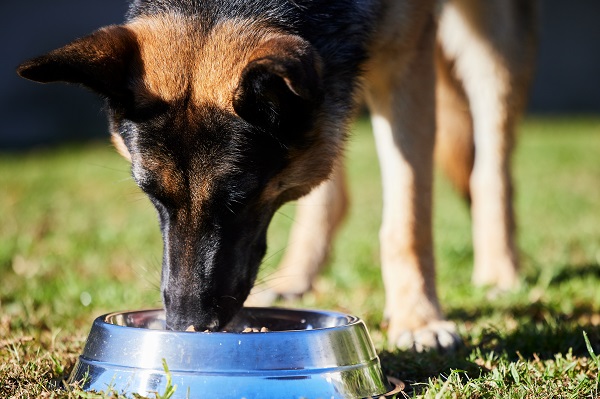
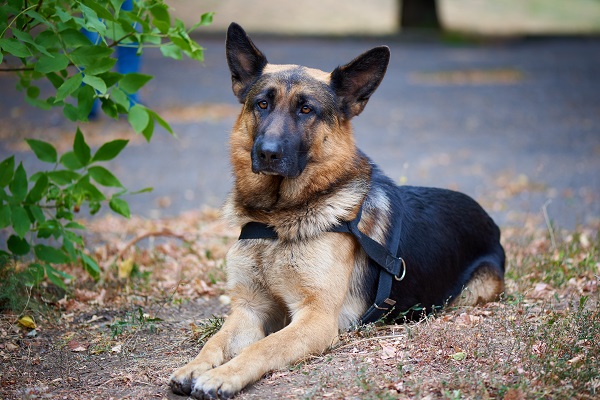
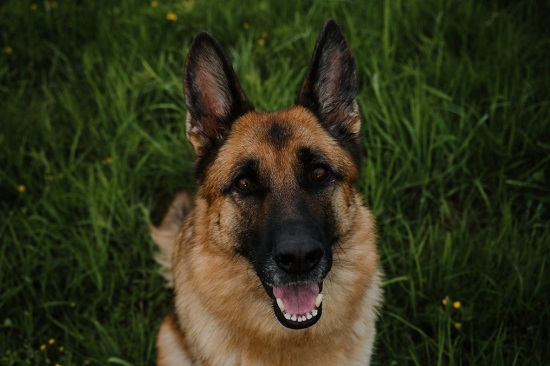
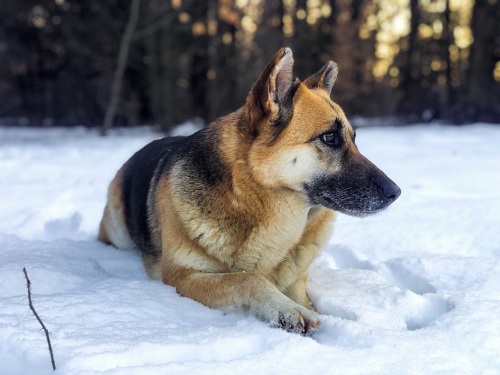

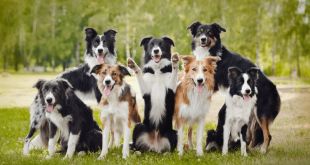

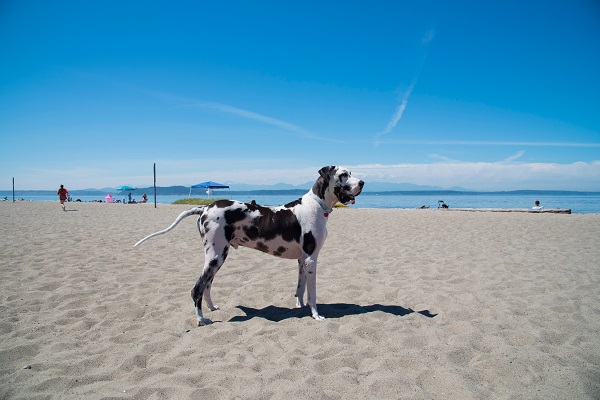












 in Chandigarh, India.
in Chandigarh, India. 
